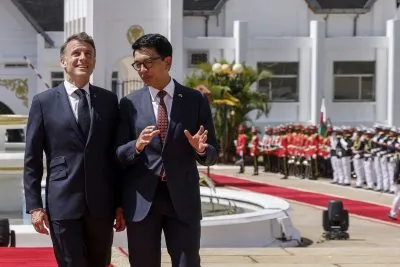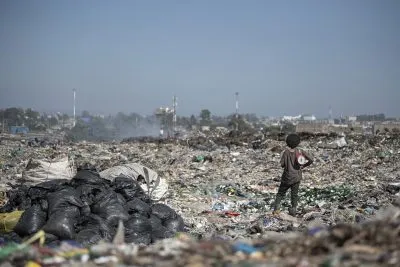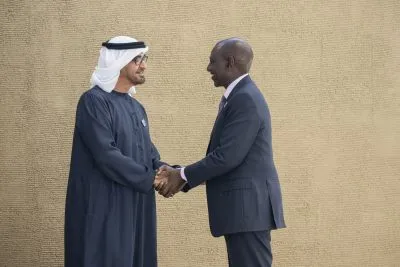Integration and harmonisation will allow island members of the IOC to find competitive advantages, secretary general Jean Claude de L’Estrac says.
The five island states of the Indian Ocean Commission (IOC) need to deepen their economic integration if they are to compete on the regional stage, retain a voice in international forums and mitigate the impacts of climate change, according to the organisation’s secretary general, Jean Claude de l’Estrac.
“Whether it is biodiversity, renewable energy, fishing, maritime security, climate change adaptation, health or connectivity, our countries have no choice than to share their know-how and technologies and adopt concerted regional strategies,” de L’Estrac says.
The members of the IOC – Mauritius, Madagascar, Seychelles, Comoros and the French Department of La Réunion – are all heavily exposed to global market and environmental conditions, de L’Estrac says, and need to cooperate to build an internal market that harnesses their individual competitive advantages.
The high costs of imported food, for example, could be offset if the group can take advantage of an increase in agricultural productivity in Madagascar – currently recovering after several years of political turmoil – which led to a suspension of aid money and a fall in agricultural productivity. Improving the connectivity between the islands could make Madagascar the region’s breadbasket, reducing the rate of imported inflation and driving job creation and economic growth in the country.
“This means that Indian Ocean countries could partly dismantle their onerous dependency on faraway suppliers of rice from South Asia, maize from Argentina and meat from Australia,” de L’Estrac says.
The islands also need to work together to ensure that their industries remain sustainable. Fisheries, in particular, are a major generator of jobs and income, but are fragile to overuse of stocks.
Around 20% of the world’s tuna is fished in the Indian Ocean – close to 1m tons, valued at $2bn – mainly from the seas around the Seychelles and north of the Mozambique Channel. Around 12,000 people are directly employed in the industry.
The United Nations estimates that around 70% of the world’s fisheries are overexploited, with the issue more acutely with large fish such as tuna. Cooperation between the islands over monitoring and regulation will be vital to ensuring that the industry remains sustainable.
Tourism is also suffering from the lack of harmonised regulatory regimes, de L’Estrac says. According to the World Tourism Organisation, around 2m tourists travelled to the region in 2013, with many deterred by the high costs of air tickets to the region and around it.
An intra-Indian Ocean regional flight costs six times more than an intra-European flight and more than one and half times that of a flight in the Caribbean – in many cases, due to the high taxes levied on air travel. Taxes make up 35-51% of the cost of a ticket in the region.
Opening up the restrictive markets for air travel would lower the barriers to economic connectivity between the islands, bring in more tourists and improve the financial fortunes of the airlines. “I hope the low prices of oil these days do not make our companies believe that all their problems have been solved sustainably. This would be a big mistake on their part,” de L’Estrac says.
The IOC has created a working group to define a strategy for cooperation in the airline industry, while the region’s civil aviation authorities are collaborating on the creation of a unified aviation market for the IOC, he says.
Defining where the islands can cooperate will allow each to best exploit its competitive advantages, according to de L’Estrac. This is increasingly important in a world where trade barriers are falling, he says. The integration of African markets through continental initiatives and free trade zones, such as the Common Market for Eastern and Southern Africa (Comesa), creates opportunities for export and trade, but could also leave industries in smaller economies exposed to competition from larger, more advanced nations.
“How can our islands assert their specificity? They do not have the same priorities or the same needs,” de L’Estrac says. “And the question is, how will they remain competitive against Egyptian and South African industries?.” The Indian Ocean islands need to have a common voice to ensure that they are not sidelined in this competitive environment, de L’Estrac says. Insular, protected economies are unlikely to thrive.
“There are considerable opportunities and the challenges are real,” he says. “But islands with insular economies need modern infrastructure and a better structured regional space, if they are to be visible and audible and to fit competitively in this region of growth.”
Nasseem Ackbarally
Want to continue reading? Subscribe today.
You've read all your free articles for this month! Subscribe now to enjoy full access to our content.
Digital Monthly
£8.00 / month
Receive full unlimited access to our articles, opinions, podcasts and more.
Digital Yearly
£70.00 / year
Our best value offer - save £26 and gain access to all of our digital content for an entire year!

 Sign in with Google
Sign in with Google 





